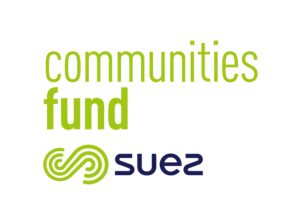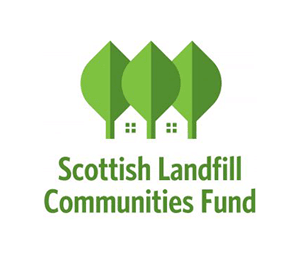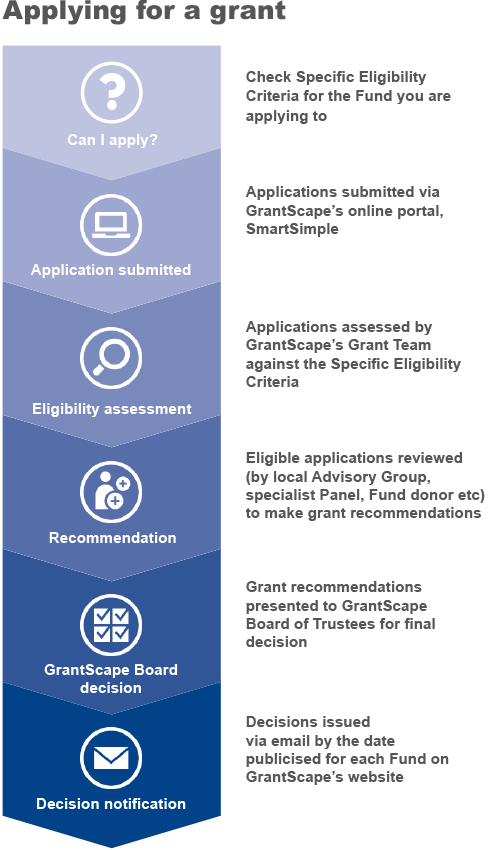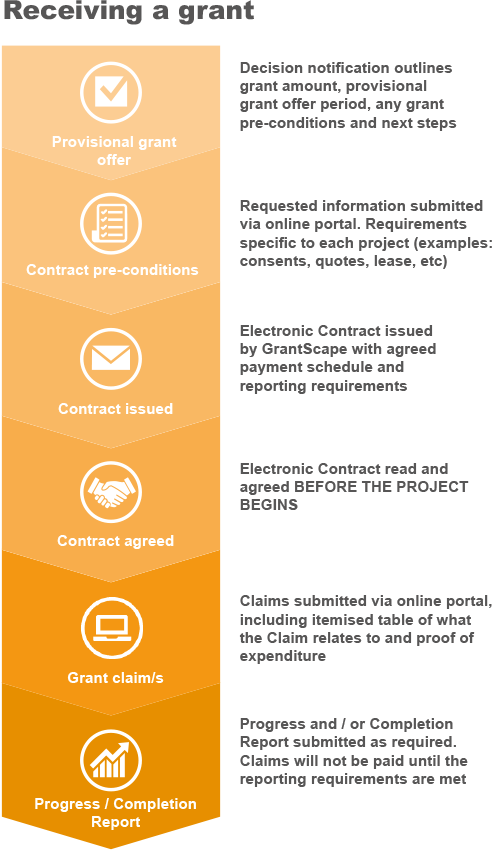The SUEZ Communities Fund – Scotland
Eligibility Criteria
Fund Overview
- The SUEZ Communities Fund – Scotland has approximately £200,000 available per year, funded by donations from SUEZ Recycling and Recovery UK, through the Scottish Landfill Communities Fund.
- There are normally three deadlines for applications, each year.
- Grants between £3,000 and £25,000 are available.
- The total project cost must be less than £250,000. If a grant is offered, your project must start within six months and complete within 12 months of funds being awarded. When establishing the total cost of the project and how much you are requesting from the Fund, we would advise you obtain 3 comparable quotes.
- If your project site has received a grant from the SUEZ
Communities Fund (or previously the SUEZ Communities Trust) within the last three years then a new application will not be considered until three years has elapsed from the date the previous funding agreement was signed. - If a previous application has been considered by the SUEZ Communities Fund, but not supported, we cannot accept a new application for the same project site for at least 12 months.


Closing Dates
There are normally three funding rounds each year.
The next closing date is 7 August 2024, decision by end of October 2024
The following closing date is 20 November 2024, decision by early February 2025
Contributing Third Party (CTP) Payment
Each grant awarded will require a donation to be made to SUEZ Recycling and Recovery UK so that the grant can be released by GrantScape. This is called a Contributing Third Party (CTP) donation. The CTP donation covers SUEZ’s costs in providing monies for the grant through the Scottish Landfill Communities Fund, plus associated fees.
In simple terms, each £11.50 of CTP donation will release £100 of funding for the project.
The application form asks groups to identify an individual or organisation who would be willing to make this CTP donation if they are awarded a grant.
Detailed information on why CTP donations are necessary, who can provide these and how to calculate the approximate amount required is provided in GrantScape’s quick reference guide: “Contributing Third Party (CTP) Guidance”.
Who Can Apply?
Eligible organisations, who can apply for funding include:
- Voluntary organisations, community groups / associations, sports clubs (note exclusion criteria regarding membership restrictions), local and national Charities
- Parish / Community Councils / Town Councils
- Local Authorities
- Social enterprises and Community Interest Companies operating on a non-profit-distributing basis. These are defined by Social UK as ‘businesses that trade to tackle social problems, improve communities, people’s life chances, or the environment. They make their money from selling goods and services in the open market, but they reinvest their profits back into the business or the local community’. Such organisations must have a minimum of three unrelated Directors.
To be eligible to apply, an organisation must:
- Have a written constitution, a set of rules, or a governing document and a bank or building society account, held in the name of the organisation, in place before applying for a grant
- Be run on a not-for-profit basis
- Own or hold a lease for the project site with at least 5 years remaining. Projects should be based at a project site which must be owned or leased by the applying organisation. If your organisation neither owns the project site, nor has a lease with a minimum of 5 years remaining, you are not eligible to apply. The lease must be active before any application is made. Letters of intent or draft lease agreements are not accepted.
Project Location
To be eligible for a SUEZ Communities Fund – Scotland grant, your project site must be in Scotland.
If you are applying for Public Amenity (Object C), Biodiversity (Object D) or Historic Building (Object E) funding (see classifications below), you will need to establish if your project is within 10 miles of a landfill site or transfer station. To find out you can use the screening tool on the Scottish Environment Protection Agency (SEPA) website.
Type of Project
Land Reclamation (SLCF Object A)
The reclamation, remediation, restoration or other operation on land to facilitate economic, social or environmental use.
Community Recycling (SLCF Object B)
Community based recycling, re-use and waste prevention projects. The project must be community based.
Public Amenities (SLCF Object C)
To provide, maintain or improve an amenity that is used primarily for leisure and recreation.
Biodiversity (SLCF Object D)
The conservation of biodiversity through the provision, conservation, restoration or enhancement of a natural habitat or the maintenance or recovery of a species in its natural habitat.
Historic Buildings, Structures or Sites (SLCF Object E)
The maintenance, repair or restoration of a building, other structure or a site of archaeological interest which is a place of religious worship, or a site of historic or architectural or archaeological interest and is open to the public. Places of religious worship must Grade A listed.
Public Access Requirements
Object C, D and E Projects must be available and open to the general public as defined by SEPA, the Scottish Landfill Communities Fund regulator – as a minimum, for 4 evenings a week, or 2 days a week, or 104 days a year.
Project Purpose
Grants are available for community projects delivering capital improvements to public amenities. Examples may include:
- Village hall improvements
- Nature reserves and conservation
- Village greens
- Community centres
- Public playgrounds
- Cycle paths
- Sports fields and facilities
- Country parks
- Historic buildings, structures or sites
Exclusions
Grants will not be available for:
- Community Shops
- Membership-based sports clubs and facilities (e.g. bowls and golf clubs), unless membership is open to the general public without undue restriction (e.g. restrictive fees, membership by nomination)
- Applications which are primarily for the purpose of energy or cost saving (e.g. solar (PV) panels, replacement heating systems, lighting and double glazing) except where existing items are no longer serviceable or if part of a wider project where it makes sense to make such improvements whilst other work is being undertaken
- Applications to construct new buildings or extensions to existing buildings. This includes construction, connection of services, fixtures and fittings. Applications for any part of “new build” projects will not be considered (e.g. furnishings, electrical appliances and equipment)
- Commercial organisations
- Individuals
- Projects that are considered statutory requirements
- Core cost or revenue based funding
- Retrospective funding (i.e. funding can only be requested for works that will begin / expenditure that will be incurred AFTER our funding decision has been made and a formal grant Contract issued)
- Projects at schools, colleges, nurseries, pre-schools and other educational establishments
- Bus services, minibus services, or vehicles
- Projects at hospitals, or hospices, or day care centres
- Any works to public highways
- Projects to deliver visual enhancements (i.e. ‘a view’), as this does not improve, maintain or provide a general public amenity
- Village or town centre enhancements, such as walkways, street works or signage
- CD’s, web-sites or remote interpretation about a site
- Public car parks, unless they are specific to a general public amenity
- Public conveniences
- Allotments, fruit / food growing projects
- Charity buildings, offices of charities, Citizens’ Advice Bureau and advice centres
- Large scale perimeter / security fencing programmes that do not directly enhance the public amenity
- Land and building purchase
Judging Criteria
The main criteria used when assessing applications received will be:
- The level of community support for and involvement in the project
- The local community benefit and enjoyment which will result from the project
Other factors that will also be considered when assessing the applications include:
- The ability of the applicant to deliver the project
- How the work will be continued after the project has been completed, i.e. its sustainability and legacy
- Value for money
- For projects that are for the conservation of the built heritage (e.g. buildings of architectural interest and/or places of religious worship) priority may be given to projects that have the widest community access and usage.
- Match funding is not required, but priority may be given to groups that can demonstrate efforts have been made to fund raise towards the project costs
If, after reading the above, you are confident that your project is eligible, please click Next, below:
Our Application Process


Our Contact Details
GrantScape
Office E, Whitsundoles
Broughton Road
Salford
Milton Keynes
MK17 8BU
T: 01908 247630
E: [email protected]
